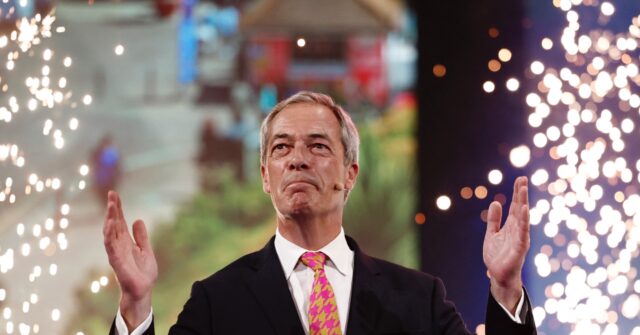Nigel Farage’s right-populist Reform UK party is experiencing a surge in national support, achieving its highest-ever rating in a recent poll conducted by More in Common. With 21% of surveyed voters backing the party, this reflects a notable increase of two points since the last poll. This rise in support comes amid a significant decline in popularity for Prime Minister Sir Keir Starmer’s Labour government, which has seen its approval ratings dwindle sharply just over 100 days after assuming power with a substantial parliamentary majority. As both Reform UK and the governing Labour party now stand at 27% in polling, concerns within Labour have begun to mount, suggesting that Farage’s party could surpass Labour ahead of next year’s local elections.
The survey reveals that while Reform UK aims to attract disillusioned voters from Labour’s traditional strongholds, particularly in the ‘Red Wall’ regions, Labour’s support has suffered largely due to its handling of critical issues such as immigration. This strategic focus reflects a broader strategy by Reform UK to capitalize on sentiments among working-class voters who had previously backed Labour but were in favor of Brexit, particularly in light of rising concerns about uncontrolled migration. Prime Minister Starmer’s commitment to combat illegal immigration has faced scrutiny, with reports indicating that the number of boats arriving on British shores has continued to rise, undermining his promise to tackle the issue effectively.
Among the top complaints regarding Starmer’s government, the failure to manage immigration has been cited as the third most significant concern, resonating with public frustration. However, the two leading issues identified by respondents include Labour’s controversial decision to eliminate winter fuel subsidies for retirees during an ongoing economic crisis, which 49% labeled as the government’s biggest failure, and Starmer’s plan to address jail overcrowding by releasing prisoners early, which garnered 32% support as a critical failure. These policy decisions have resulted in a growing sense of discontent among the electorate, eroding public confidence in Labour’s governance.
Compounding the challenges faced by Starmer’s administration is a scandal involving expensive gifts received from high-profile Labour donors. The Prime Minister himself has acknowledged accepting over £134,000 in donations since taking office, including luxuries from Lord Waheed Alli, which has prompted accusations of sleaze and corruption within the party. The scandal has led to dissent within Labour ranks, exemplified by the resignation of MP Rosie Duffield, who criticized the perceived deterioration of the party’s ethical standards and its departure from core values, contributing to a growing narrative of disillusionment.
From a broader perspective, the polling data and public sentiment reflect a backlash against what many characterize as a lackluster start to Labour’s governance. According to Luke Tryl, director of More in Common UK, the feedback from the public indicates a substantial dissatisfaction with the government’s performance, characterized as disappointing, with an overall assessment landing around a “D minus.” This drastic shift in public opinion has contributed to the evaporation of Labour’s previously secure lead in the polls, leaving Starmer’s leadership and effectiveness in question as critics call for a reassessment of the government’s direction.
In conclusion, the political landscape in the UK is undergoing significant changes, with Reform UK capitalizing on Labour’s self-inflicted wounds in the early days of Starmer’s government. As support for Reform rises, the Labour party grapples with the repercussions of its policies and internal scandals, facing a potentially precarious situation as it approaches crucial local elections next year. The ability of Starmer to recover lost ground and reconnect with the voter base could prove vital for the party’s future, as the changing tides of public opinion signal a readiness among the electorate to embrace alternatives to traditional party politics.

